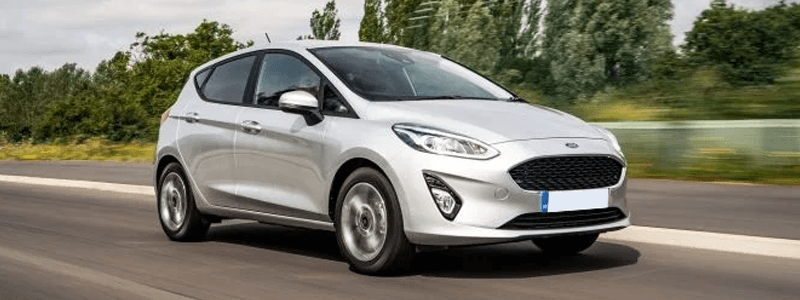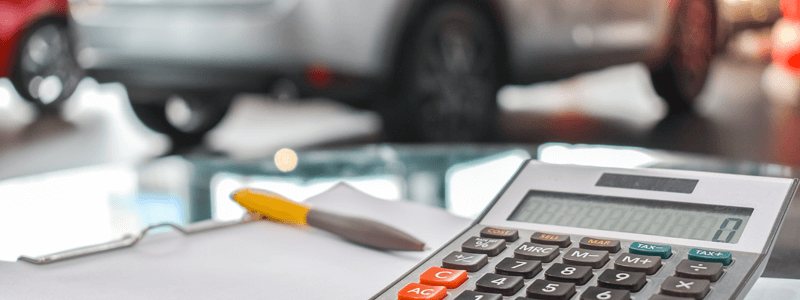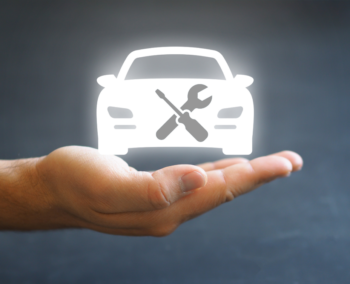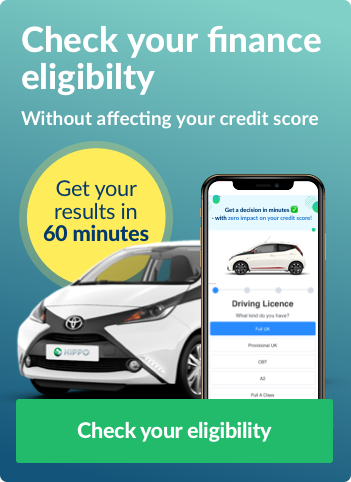
Car finance is a way to drive or own the car you want by making monthly payments. There’s usually no high upfront cost, meaning you can often drive a vehicle that would otherwise be too expensive to buy outright.
The car finance agreement is typically split into 24, 36, 48 or 60-month terms, depending on your personal preference and what type of car finance you choose.
You then make your agreed payment each month, and at the end of your term – depending on what type of car finance you’ve chosen (which we’ll go on to a little later) – you either keep the car, trade it in for another or hand it back and walk away.
What are the pros and cons of car finance?
As with any type of finance agreement, there are pros and cons to consider when thinking about car finance.
Pros
- Drive a better car than you might be able to afford otherwise
- No high upfront cost
- Guaranteed to change your vehicle more frequently depending on the type of finance you choose
- Fixed monthly payments to help you budget
- Contract length to suit your circumstances
- Can include maintenance costs into your monthly payment for peace-of-mind motoring
Cons
- Mileage restrictions depending on the type of finance you choose
- Acceptance depending on credit score (which we’ll, again, come on to later)
- Never own the vehicle outright with most car finance options
- May face extra charges if you don’t look after the vehicle
What are the different types of car finance?
When it comes to car finance, you have a few different options. Often, depending on what you want to do with the car at the end of your agreement will determine which one is right for you.
For example, if you want the opportunity to change your vehicle more often, so you’re staying up to date with style, technology and efficiency, a lease or personal contract purchase might be best for you.

Alternatively, if you want to keep the car at the end of the agreement – to continue driving or to sell – then a hire purchase or lease purchase is probably more suitable.
But, there are other differences between the types of finance available.
Personal Contract Hire (PCH or lease)
A PCH agreement is what’s more commonly referred to as a lease. It’s one of the most trouble-free and straightforward ways to drive the car you want.
You choose if you want to make a deposit – sometimes called an initial rental – then agree your monthly payments over typically 24, 36 or 48 months.
Once you’ve made all your payments, you hand the car back to the finance company and walk away—no more responsibility.
With a PCH, to help determine your monthly payment, you’ll need to predict how many miles you’ll be driving each year you have the car.
If, when you hand the car back, you’ve gone over that allowance, you’ll have to pay a pence-per-mile charge. It’s not the same amount for every finance company, so make sure you read your finance agreement carefully to find out how much yours may be.
With a lease, you’ll also be charged if there’s any damage to the car outside of the fair wear and tear guidelines.
You might think that all sounds a bit worrying. So, why do so many people choose to lease a car?
Because it’s usually the cheapest option. Because you’re only paying for the car during your ownership, you’re not paying the full price, meaning you can enjoy a more expensive vehicle for low monthly payments. And if you include maintenance in your plan, you don’t have to worry about the cost of servicing either.
Personal Contract Purchase (PCP)
A PCP is quite similar to a lease or PCH.
You decide any deposit amount, predict your mileage and pay fixed monthly payments, usually 24, 36 or 48 months.
However, with a PCP, when your agreement comes to an end, you have more flexibility with your choices.
Like a lease, you can hand the car back to the finance company, walk away, and let that be that.
But, you can also either part exchange the car for a new one or pay a final payment – sometimes called a balloon payment or the guaranteed future value – and keep the car.
That final payment is determined by the price of the vehicle at the start of your agreement and how many miles you’re expected to do during your term.
Essentially, your predicted mileage amount is used to estimate what the car’s guaranteed future value will be.
And even if you’re not going to buy the car, having a high future value will always help you.
That’s because, with a PCP, you’re only paying the difference between the car’s full price and its final payment, helping to keep your monthly payments low.
It also means that should you do fewer miles than you initially predicted, you might find yourself in equity – where your car is worth more than your guaranteed future value.
If that’s the case, you can part exchange the vehicle and use that extra money as a deposit on a new car to help make your monthly payments lower.
Read: What is personal contract purchase and how does it work?
Hire Purchase (HP)
A hire purchase is a great way of financing a car if you want to own the vehicle at the end of your agreement.

Like the other finance types, you choose to include a deposit and agree to your fixed monthly payments.
Your agreement usually lasts between 36 and 60 months, depending on your preferences and circumstances. And at the end of it, unlike a PCP or lease, you own the car outright.
There’s no big balloon payment. And because of that, there’s no mileage restriction.
Simply, when the plan ends, you’re all paid up and the car is yours to do with as you wish.
Of course, as you’re paying for the whole car, the monthly payments are usually higher than a PCP or lease.
Read: What is hire purchase and how does it work?
Lease Purchase (LP)
A lease purchase is a financial agreement whereby you get to enjoy the low monthly payments of a lease, but you must purchase the vehicle at the end of your agreement.
Whereby with a standard lease or PCP, you can walk away from the vehicle, you don’t have that option with an LP.
You again choose your deposit amount and set your mileage, but at the end of your term, whatever your final payment is, you have to pay it.
So, although the monthly payments are lower, it does mean that at the end of your term, you face a larger single payment.
Read: What is lease purchase and how does it work?
Personal Loan
Another option you have is a personal loan. These are usually obtained through a bank or building society.
Like car finance, you know how much you’re going to pay each month. But you don’t have to wait until the end of your term until you become the legal owner.
As your financial agreement is with a third party, as soon as you pay for the vehicle – which is often before you drive it away – it’s yours.
However, as your car no longer has ties to a finance company, you have no assurances when it comes to maintenance, and you’re responsible for all repairs.
Also, it’s often harder to obtain a personal loan than it is car finance, meaning you could damage your credit score by applying.

Rates from 12.9% APR. Representative APR 18.9% We are a credit broker, not a lender.
*a hard search will be performed if you decide to proceed
Can I get car finance with less than perfect credit?


It’s impossible to guarantee you’ll be accepted for car finance. There’s no magic credit score or amount of monthly income.
Each application is different. And each lender has its own criteria. However, if you have less than perfect credit, there are a couple of ways you can improve your chances.
Firstly, apply with a company that works with specialist lenders who help those with bad credit. By choosing to look below top-tier lenders, you can drastically improve the chances of being approved.
Secondly is to use a broker who carries out an initial soft search. That means they’ll be able to find you a suitable car finance lender without affecting your credit score.
If you don’t, and you’re rejected by a lender, it’ll show on your credit file and may reduce your credit score.
Learn more: Visit our bad credit hub for advice and guides on bad credit car finance
What to do before leasing or buying a car
Work out what you can afford
It’s all well and good wanting a brand-new Mercedes. But is it actually affordable?
Sometimes going for the cheaper option is better for you, especially in the long run.
So, before getting yourself a car, going over your budget is always the most important thing. If you don’t, and you can’t keep up with repayments, you’ll end up damaging your credit score and may lose your car.
Then, with a lower credit score, you may find it harder to finance another.
Read: How much can I borrow for a car?
Decide what type of finance fits your needs
There are many different paths to take when it comes to getting yourself a new car.
Leasing or PCP often lets you drive a newer car for low monthly payments. It can also give you more flexibility when your agreement ends.
But buying the car through a hire purchase agreement or personal loan also has its positives, including the fact that you own the car.
So, before going ahead, it’s best to weigh up the pros and cons of every option and figure out which would be the best for you.
Decide if you want brand-new or Approved Used
There are pros and cons to leasing or buying both a brand-new car or Approved Used one.
With a brand-new model, there’s likely to be less need for maintenance and it’s probably going to be more reliable.
But, you will pay more every month for a new car compared to an Approved Used model.
And if you include a warranty package in your Approved Used car finance agreement, for example, you can put any reliability concerns to the back of your mind.
Then again, are you happy driving a car that’s already been driven by somebody else?
You need to establish which is going to be right for you. But be sure to include your monthly budget in your decision-making.
Where are you going to lease or buy your car from?
There’s now a huge range of sellers when it comes to both brand-new and used cars.
You could choose a private seller, which may be a bit cheaper. But your only finance option will be a personal loan or savings, and it often comes with little to no assurances in terms of the vehicle’s quality or condition.
Then again, you could go to a dealership. You’ll probably have to pay a little more, but you’re guaranteed a certain level of quality and you have many more options when it comes to financing your car.
So, is saving that bit extra worth the worry? That’s for you to decide.
Read: What is a credit broker and what should I look out for when financing a car?
Choosing the type of car you want or need
Sometimes, you’re in a position where you have free range of the type of car you want or need. But it’s rare.
Usually, you have an idea of what kind of vehicle you want – a big SUV perhaps, or a sporty coupe – or you need the vehicle to have specific characteristics.
For example, if you have a big family, it’s unlikely a small city car would suit your needs.
So, make sure you have a think about what your wants and needs are before beginning your search.
Do your research
And finally, a big part of any lease or purchase is doing your research.
Not only on what type of car is suitable for you, but also on whether you’re getting a good deal.
By doing your research, you can see what vehicles are in your budget, and also how much you should be expecting to pay.
Research is essential to any car lease or purchase.
Can I get a car and a finance deal in the same place?
Yes. There are some companies which will provide your finance and not a car, and vice versa. But any main dealership will give you both.
Of course, you don’t have to use the car finance services if you choose to take out a personal loan or you’re using savings.
But you tend to find the best deals are when you get both from the same place.
Here at Hippo Motor Finance, we can both source the vehicle you want and organise the best finance deal available to you.
We have more than 1,000 vehicles available to choose from, as well as over 6,000 different deals.
It’s a really simple process, too.
1. Check your eligibility
Either apply online through our Apply Now feature or speak to one of our account managers who will take a few details from you before submitting your application.
2. We’ll find you a lender
Get approved by one of our lenders. We work with both good and bad credit lenders, and our initial credit search is soft. So, you can apply for car finance without affecting your credit score.
3. Use the Hippo Portal to find your vehicle
Once you’re approved, you can choose the car you want from our Vehicle Portal – if you want to do it online – or by speaking to your account manager over the phone.
4. We’ll deliver your vehicle to any UK location
Have your new vehicle delivered directly to your door within 48 hours or come and collect your new car from our state-of-the-art showroom in Lancashire.
It’s really that simple. And if you’re ready to start your Hippo journey, just click the button below.
Are you ready to take your first step and check your eligibility?







Get a quote in minutes ✅
– with zero impact on your credit score!*
Get Started






Rates from 12.9% APR. Representative APR 18.9% We are a credit broker, not a lender.
*a hard search will be performed if you decide to proceed













